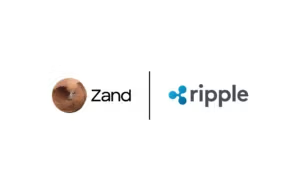In a pioneering development, the U.S. Department of Commerce has begun publishing its Gross Domestic Product (GDP) statistics on nine public blockchains, including Bitcoin and Ethereum. This emerges as one of the first instances where a federal agency has leveraged decentralized networks to bolster the transparency and integrity of macroeconomic data.
A Digital Ledger for Economic Truth
Under the so-called “crypto-president” administration, the initiative reflects a symbolic, yet substantive, push toward making U.S. economic figures “immutable and globally accessible,” as stated by Commerce Secretary Howard Lutnick. The data, which includes cryptographic hashes and, in some cases, topline GDP numbers, was recorded on Bitcoin, Ethereum, Solana, TRON, Stellar, Avalanche, Arbitrum One, Polygon PoS, and Optimism.
Additionally, Chainlink and Pyth have been tapped as oracle partners to relay economic data, including GDP, the Personal Consumption Expenditures (PCE) Price Index, and Real Final Sales to Private Domestic Purchasers, to blockchain ecosystems.
Rationale and Industry Response
This step is framed as a proof of concept, introducing a supplementary path to distribute federal data. Proponents argue it could enhance data reliability, prevent tampering, and support emerging use cases such as decentralized finance (DeFi), tokenized asset issuance, prediction markets, and immutable dashboards.
Specifically, Chainlink highlighted how this will enable new derivatives markets and financial infrastructure built on the integrity of macroeconomic data. Pyth lauded the move for increasing confidence in public systems and expanding access to DeFi protocols.
The Broader Vision
Secretary Lutnick framed the blockchain approach as more than innovation—it is positioning the U.S. as the “blockchain capital of the world,” aligning curated data transparency with technological leadership.
Support from cryptocurrency exchanges like Coinbase and Kraken also played a crucial role in facilitating the technical execution, including payment of transaction fees and ensuring a smooth implementation.





